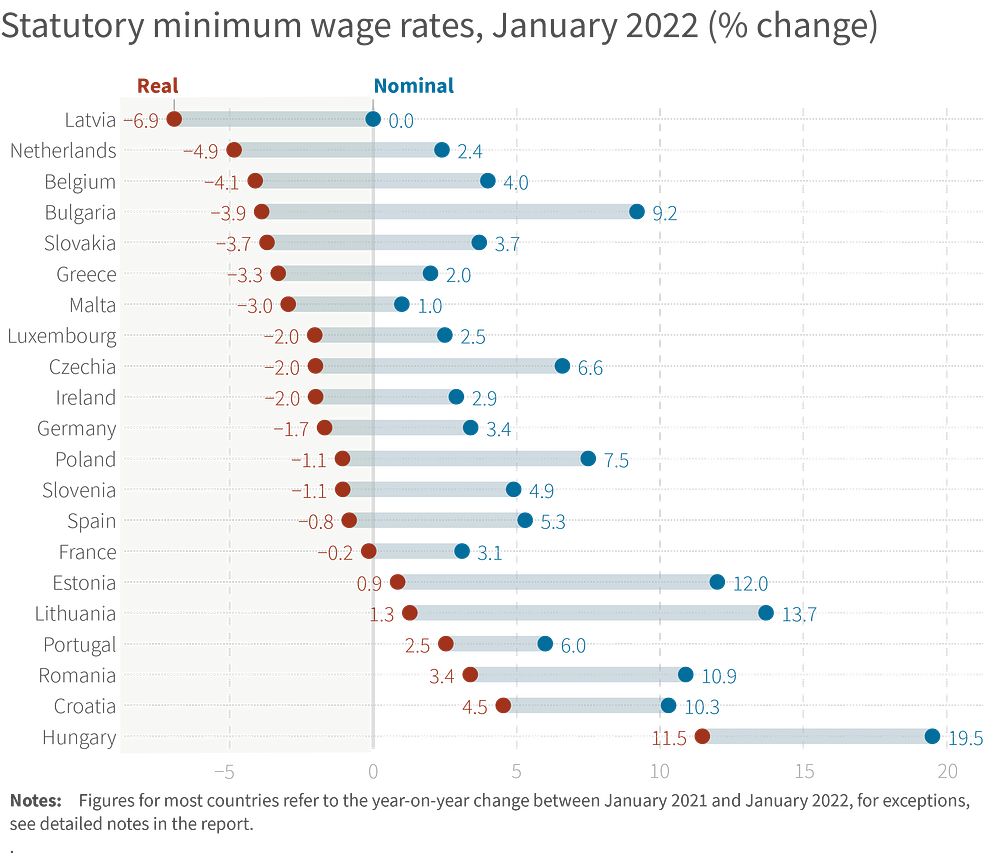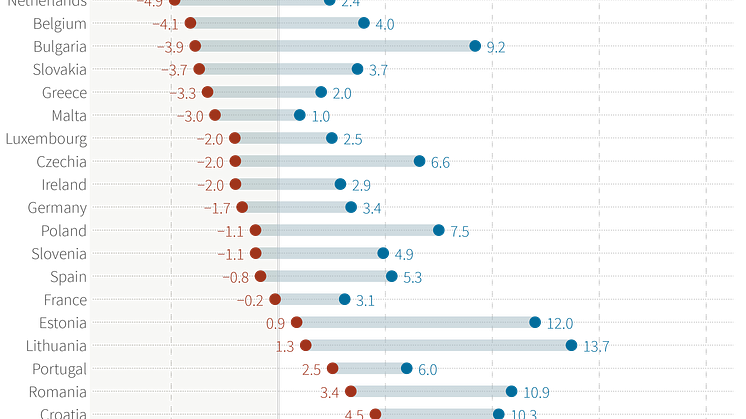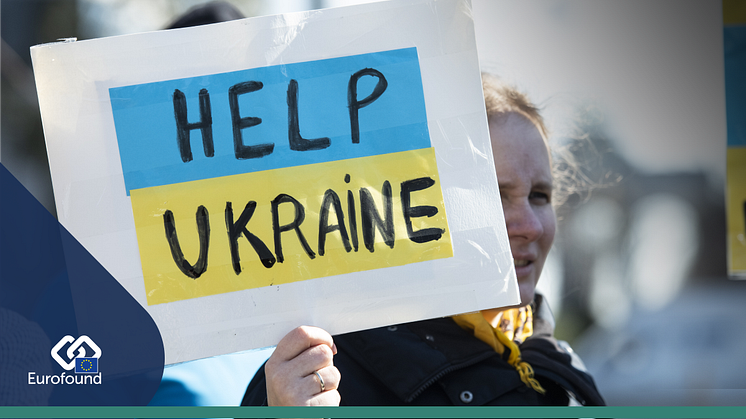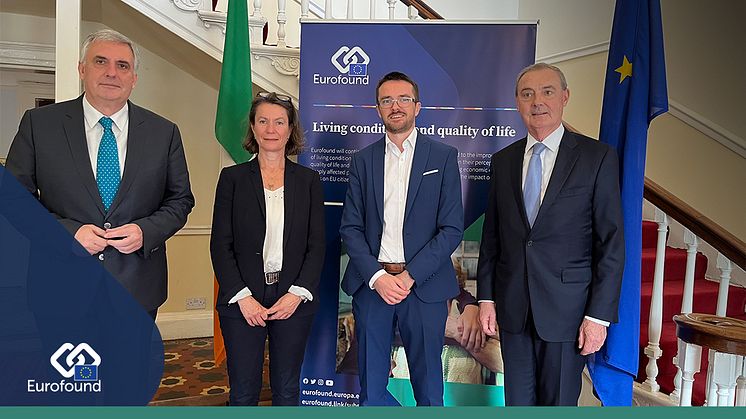
News -
Real minimum wages declined in most EU Member States
Against the background of inflation affecting European countries, minimum wage workers in 15 out of 21 Member States with statutory minimum wages registered a decline in their wages in real terms between 1 January 2021 and 1 January 2022. This was despite comparatively large increases in nominal rates in the EU during the period.
The impacts of inflation on low-wage earners is an important aspect of Eurofound’s Minimum wages in 2022: Annual review, published shortly after the political agreement on adequate minimum wages between the European Parliament and the EU Member States. Eurofound’s report shows that there are already signs that the proposed directive is having a positive impact, with some actors refocusing debates on the topic, preparing possible modifications to the system or criteria for wage setting, or uprating wages in line with ‘international reference values’ mentioned in the proposal.
In nominal terms statutory minimum wages increased to a greater extent than in the previous year in most Member States. In five central and eastern European Member States, the percentage increase in statutory rates reached two digits: Hungary (19.5%) and Lithuania, Estonia, Romania and Croatia (all more than 10%). In the pre-enlargement Member States, minimum wages generally increased more modestly, with the largest increases reaching 4–6% in Portugal, Spain and Belgium.
However, inflation has reversed the impacts of these increases in most Member States. If present inflation trends continue, minimum wages will barely grow in real terms in any country in 2022, and significant losses in the purchasing capacity of minimum wage earners will become a dominant theme – unless the issue is addressed by additional uprates or other support measures for low-paid employees during the year.
The report indicates that substantial debates among national actors on how to promote collective bargaining and increase bargaining coverage are taking place in only Denmark, Latvia and Norway (also analysed in addition to EU Member States). Establishing action plans to promote collective bargaining is an important element of the new EU directive on adequate minimum wages and will be a key requirement for Member States.

The report also shows that minimum wages can play a critical role in reducing wage inequality. Findings relating to Spain demonstrate that the impact of the 22% increase in the minimum wage in 2019 led to the greatest reduction in wage inequality in EU Member States in the same year. This is likely to have been a result of the minimum wage increase, which counteracted the high level of wage inequality in Spain, a gap that had grown in the year before the hike.
Speaking on the publishing of the report, Eurofound Executive Director Ivailo Kalfin said ‘This research makes clear that, while there have been substantial nominal changes to minimum wages in several Member States, these are unlikely to be adequately felt in real terms by low-wage earners. The provisional agreement between the European Parliament and the Council comes at a crucial time, we must ensure that low-wage earners are as protected as possible from the wide-ranging impacts of inflation across Europe.’
Read more:
- Publication: Minimum wages in 2022: Annual review
- Blog: How to ensure adequate minimum wages in an age of inflation
Podcast:
- EurofoundTalks: Minimum wages




